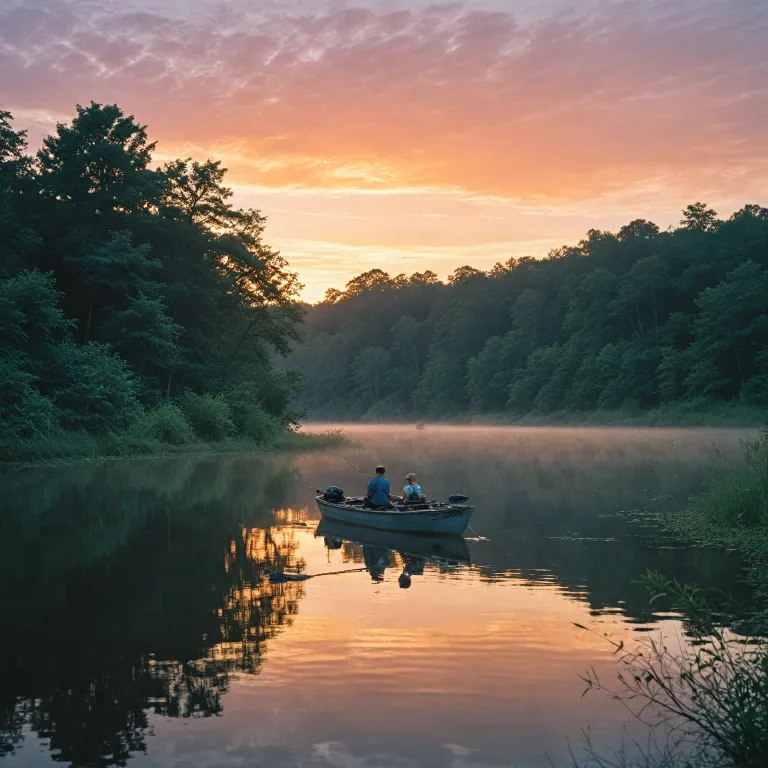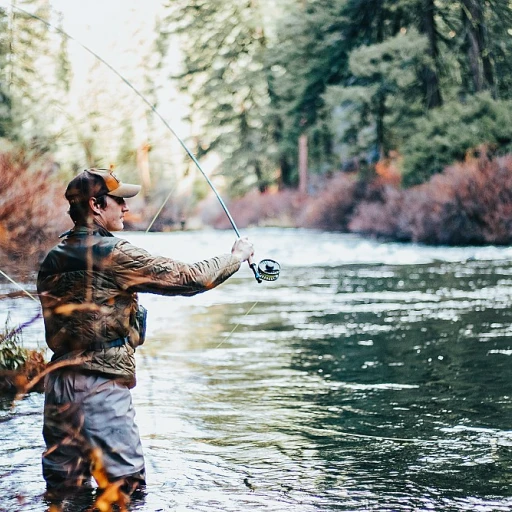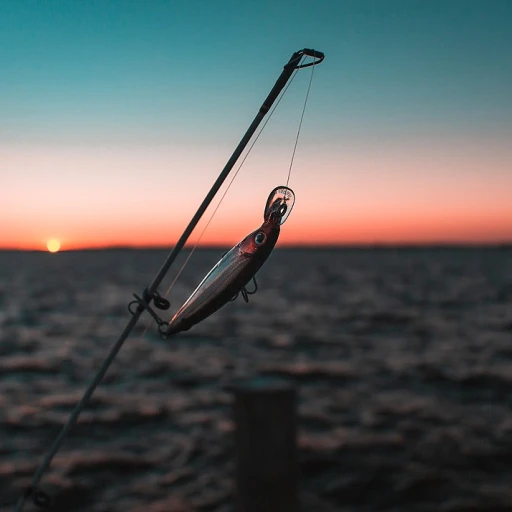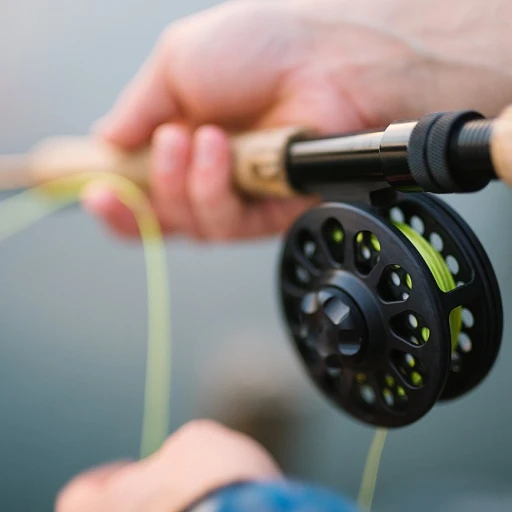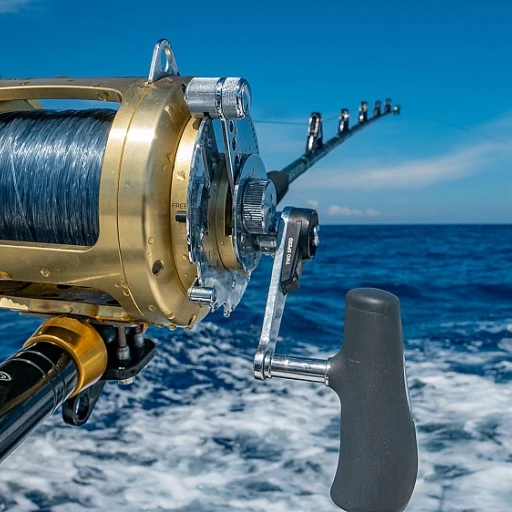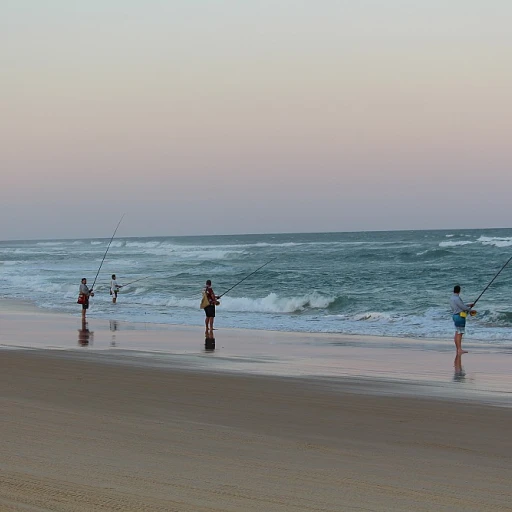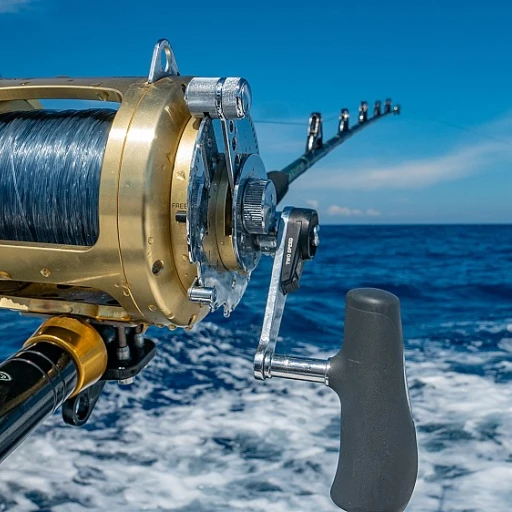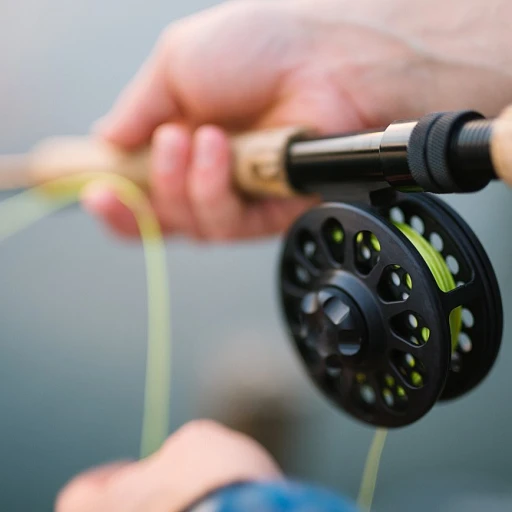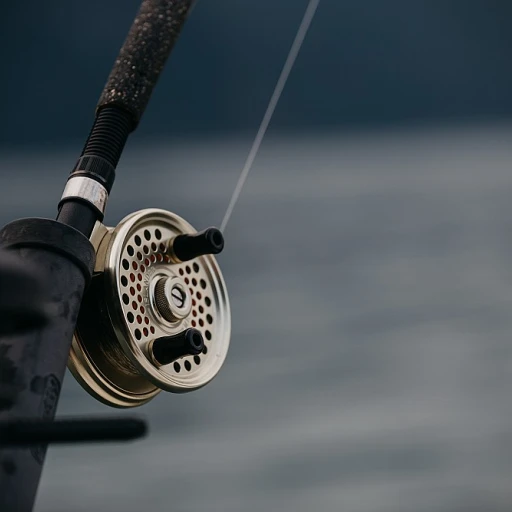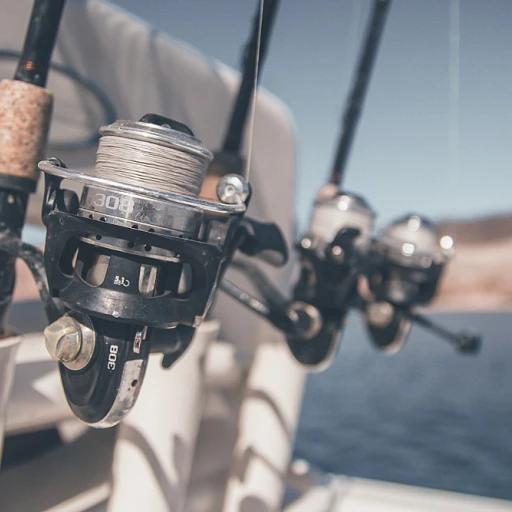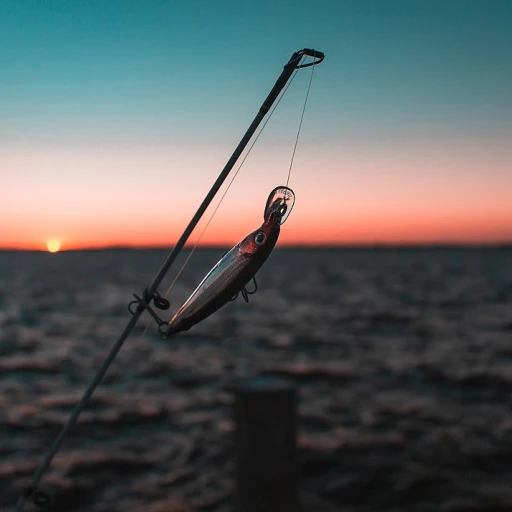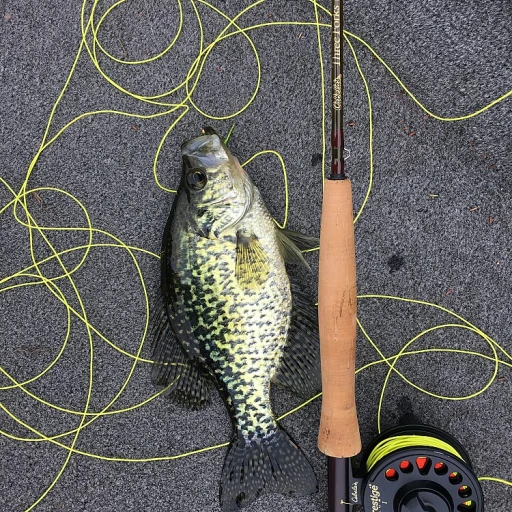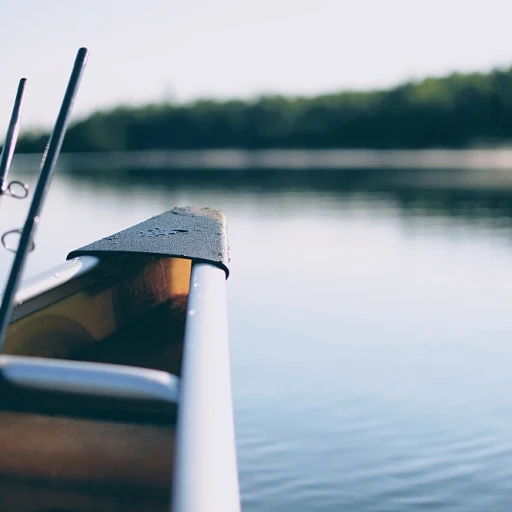
Understanding the Basics of Fishing
Grasping the Fundamentals of Your Fishing Journey
Embarking on the journey of fishing begins with understanding its foundational elements. Whether you're fishing from the shore or a fish boat, the experience starts with knowing how to handle essential equipment like the fishing rod and reel. These tools are key in ensuring a successful catch, setting the stage for various adventures, be it fly fishing or bait casting. Your fishing trip will shift from basic to more advanced as you explore different fish species and types of fish in diverse environments. Fishing enthusiasts suggest getting acquainted with the types of fishing tackle to match the fish you plan to catch. This is where learning to tie a reliable knot becomes crucial, ensuring your tackle is secure and ready to cast. A fishing license is often required and serves as your ticket to various fishing spots across different states. Securing a fishing license not only permits you to fish legally but also contributes to fishing conservation efforts. To make your fishing experience smoother, consider mobile app tools that are available to help you find popular fishing spots and check specific regulations in your area. These apps can track weather conditions, water temperatures, and even times when fish are biting – invaluable information for fishing beginners seeking to boost their success rate. For those undecided about what species to target, understanding the behavior of different types of fish can guide you. This knowledge assists in executing catch release methods effectively or deciding when to keep fish for a self-prepared meal. Learning the basics of handling your fishing gear, recognizing the correct times to button the release mechanism of a spinning reel, and familiarizing yourself with attractive bait will increase your chances of catching and potentially releasing fish back into the water responsibly. These steps are more than just aspects of the fishing experience; they are integral to fostering a deep appreciation for this timeless activity. For more insights into preparing your catch, take a look at delicious recipes like catfish dinner ideas, ensuring your hard-earned catch can be enjoyed to the fullest extent.Essential Gear for Beginners
The Right Tools for a Perfect Catch
Diving into the world of fishing requires the right gear to make your experience seamless and enjoyable. As a beginner, having essential equipment is foundational. Let's explore what you'll need to get started on the water.
Your primary equipment will be the fishing rod and spinning reel. Choose a rod that matches your preferred types of fish. A light rod with a flexible handle is ideal for small to medium water fish. For the reel, a quality spinning reel that can easily handle the tug of a fish is crucial.
Next, consider your fishing tackle. This includes lines, hooks, weights, and bobbers. Ensure that you have a variety in your tackle box to match different fish species and water conditions. A versatile collection will ensure you're prepared whether you're casting from the shore or a small fish boat.
Another essential is to learn about mastering easy knots for recreational fishing. Being able to securely attach hooks and lures will enhance your chances of a successful catch. Knots also contribute significantly to the durability of your line in varied conditions.
For those without a fishing license, acquiring one should be a priority. Regulations vary by state, so be sure to find out the requirements for your area to stay compliant.
Last but not least, a mobile app for fishing beginners can be a valuable tool. Apps can help locate fishing spots, allow you to track your fishing trip success, and even assist in identifying different fish species.
With these essentials in hand, you'll be well-equipped to begin your adventures. Remember, attending to your gear and improving your skills with each step will deepen your appreciation for this wonderful sport.
Selecting the Right Fishing Spot
Finding the Perfect Location to Cast Your Line
Selecting the right fishing spot is akin to choosing the best seat in a theater; it can make or break your fishing experience. Identifying suitable locations involves understanding the environment and the types of fish present in those waters. Key factors include water temperature, depth, and the season, all of which affect fish behavior.- Consider the types of fish you want to catch— specific fish species prefer particular habitats.
- Consult state regulations to ensure that your chosen spot is legal and safe for fishing.
- If you’re fishing from a boat, research boat-friendly water bodies and check for fishing license requirements.
- Try to find areas with underwater structures like rocks or fallen trees, as fish are often attracted to these environmental features.
Basic Fishing Techniques
Getting a Grip on Basic Fishing Techniques
For those who are just started fishing, mastering basic fishing techniques is a must. It isn't just about casting a line; it's about learning the intricacies that will help you handle a successful fishing trip. Let's dive into some fundamental techniques you need to know:- Understanding Your Equipment: Learn how to properly use your fishing rod and spinning reel. Familiarize yourself with the components and their functions. This knowledge will ensure you handle fish more efficiently when you feel one biting your line.
- Knots Are Key: Tying strong knots is an essential skill for any angler. Whether you’re attaching your hook or connecting your tackle, a good knot can make the difference in whether you land a fish. Practice the different types of knots until you feel confident.
- Master the Cast: Casting might seem simple at first, but it requires practice. For beginners, start with the basic overhand cast, gradually moving to more advanced casts as you get comfortable. This will improve your chances of reaching those optimal fishing spots.
- Timing and Patience: Fishing requires patience. Fish species bite at different times, often influenced by water conditions and weather. If you’re not catching a lot at first, don’t be discouraged. Persistence is part of the art of fishing.
- The Art of Catch and Release: It’s important to learn how to catch and release fish properly. This practice sustains fish populations and ensures that fishing remains a healthy and thriving activity. Handle the fish gently, and always release them gently back into the water.
Safety and Etiquette in Fishing
Principles of Safety and Proper Etiquette in the Fishing World
Embarking on a fishing trip is not just about catching fish, but also about respecting the environment and other fishermen around you. As you started fishing and learning the basics, it's crucial to incorporate safety measures and etiquette into your fishing practices. Below are some essential guidelines to ensure a safe and respectful experience:
- Secure the Fishing Spot: When choosing fishing spots, ensure that the area is safe and permitted for fishing. Always check if a fishing license is required in the state you plan to fish.
- Handling Equipment: Properly handle your fishing rod, reel, and tackle to prevent injuries. Always check and secure your knot before casting, and carefully manage the hook.
- Personal Safety: When fishing from a fish boat or on the shoreline, wearing an appropriate life jacket is essential. Ensure your safety gear is in order, especially when water fishing.
- Catch and Release: If you don't intend to keep the fish, practice catch and release methods effectively. This involves handling the fish with care, using a wet hand or glove, and releasing it back into the water safely.
- Respect Wildlife and Environment: Always respect the ecosystem. Do not litter and keep the surroundings as you found them. Dispose of fishing tackle and bait properly.
- Interact Respectfully: When fishing around others, maintain a reasonable distance and avoid disturbing their fishing efforts. Share spaces amicably and don't encroach on others' fishing spots without permission.
By incorporating these steps into your fishing practice, you not only enhance your own experience but also preserve the fishing spots for future enjoyment. As you continue to learn and grow in your fishing venture, upholding these guidelines will inevitably become second nature, benefitting both the community and the environment.
Exploring Advanced Fishing Products
Taking Your Skills to the Next Level
Once you have familiarized yourself with basic fishing techniques and gear, it's time to explore advanced fishing products to enhance your fishing experience. Here’s a step-by-step guide to help you make informed choices:- Advanced Fishing Rods and Reels: As you gain confidence in fishing, consider upgrading your gear. A high-quality fishing rod and spinning reel can make a significant difference. Look for rods with better sensitivity to detect fish biting and reels with a smooth drag system to handle larger fish species.
- Specialized Hooks and Tackles: Invest in a variety of hooks and fishing tackle suited for different types of fish. The right tackle can increase your chances to land fish successfully. Understanding different knot techniques for securing hooks will also play a vital role in your fishing trip adventures.
- Fishing in Diverse Waters: Explore various bodies of water for enriching experiences. From freshwater lakes to saltwater sports, each offers unique challenges. Knowing how to adapt to different water fish conditions can significantly impact your catch.
- Using Advanced Gadgets and Mobile Apps: Utilize technology to improve your fishing expeditions. Mobile app tools can be extremely helpful in finding fishing spots and keeping track of specific fish biting activities. Some even offer real-time updates on weather conditions and water temperatures.
- Practicing Catch and Release with Care: As a responsible fisherman, consider practicing catch and release. Ensure you handle fish gently, using wet hands or a fish-friendly net where possible. Quick and correct release techniques will help maintain healthy fish populations.
- Boat Fishing Opportunities: If you want to venture beyond the shore, fishing from a fish boat can provide a broader range of fishing locations. Ensure your fishing license is up-to-date and familiarize yourself with boating safety regulations in your state.

